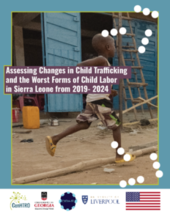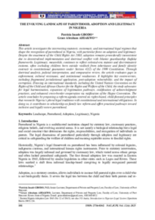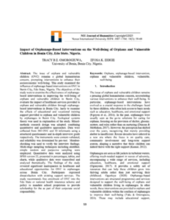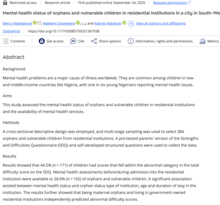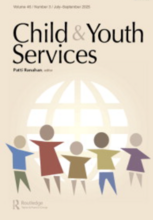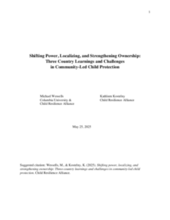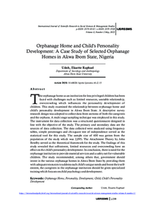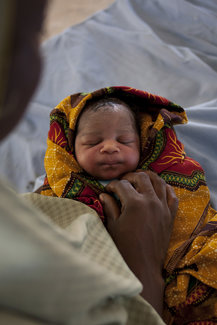

Displaying 11 - 20 of 634
This endline report reviews changes in child trafficking and child labor across four districts in Sierra Leone between 2019 and 2024, drawing on both quantitative and qualitative data. It summarizes major findings, outlines key recommendations, and provides an overview of the study’s methodology and program phases from baseline to endline.
This article analyzes how Nigeria’s statutory, customary, and international laws intersect to shape adoption and legitimacy, revealing inconsistencies, cultural resistance, and systemic weaknesses that undermine children’s rights. It calls for legal harmonization and reforms grounded in child-centered and rights-based principles to create a more inclusive and secure framework for recognizing parenthood.
This study examined the impact of orphanage-based interventions on orphans and vulnerable children (OVC) in Benin City, Nigeria, focusing on healthcare, education, and vocational support. Findings revealed significant inadequacies in these services, with participants expressing dissatisfaction, and the study recommends free health insurance enrollment and mandatory school scholarships to improve OVC well-being.
This study assessed the mental health of children in 12 Nigerian residential institutions and found that many had abnormal scores on the Strengths and Difficulties Questionnaire, with risks linked to orphan status, type of institution, and length of stay. The findings highlight the urgent need for routine mental health assessments and better care for children in residential settings.
This article explores how the Association of Orphanages and Homes Operators in Nigeria (ASOHON) is urging both federal and state governments to prioritize budgeting for vulnerable children, emphasizing the importance of shifting from institutional care to family-based foster care.
The Ogun State Commissioner for Women Affairs and Social Development, Adijat Adeleye, has warned orphanage homes in the state against putting up children for adoption without getting the state government’s approval and clearance.
AVSI has implemented the project “HOME 2 – Ensuring protection to vulnerable children in Sierra Leone and Ivory Coast”, funded by the Italian Commission for International Adoption (CAI).
Street-connected children in Ghana face systemic marginalization, requiring comprehensive interventions at the family, community, and policy levels. Based on insights from 12 social workers, this study highlights micro-, mezzo-, and macro-level strategies to reduce the number of street-connected children and support their reintegration into society.
This report synthesizes learning on community-led child protection in Sierra Leone, Kenya, and India. It shows the power of communities' own agency and action on behalf of children and underscores the importance of ownership.
This study investigated how conditions in orphanages—such as limited resources, unstable relationships, and overcrowding—affect children’s personality development in Akwa Ibom State, Nigeria, using surveys of both caregivers and orphans. Findings showed that these factors negatively impact self-esteem and overall development, highlighting the need for greater government investment, adequate resources, and specialized caregiver training in child psychology and development.

